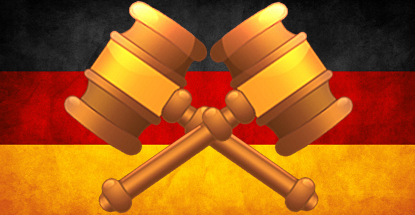 A German court has ruled that the country’s online sports betting licensing process was fundamentally flawed, opening up the distinct policy that the entire process will have to be redone.
A German court has ruled that the country’s online sports betting licensing process was fundamentally flawed, opening up the distinct policy that the entire process will have to be redone.
On Monday, the Administrative Court of Wiesbaden released its ruling on a challenge brought by an Austrian sports betting operator who failed to win one of the 20 federal online sports betting licenses awarded last September. The Court ruled that the licensing process had violated numerous laws, raised transparency concerns and violated European Union edicts against restrictions on the freedom to provide services.
The Court took particular offense at the Hessian Interior Ministry’s failure to disclose selection criteria in advance of the licensing process, as well as the Ministry’s lack of emphasis on operators’ need to identify methods of mitigating problem gambling behavior.
The Court’s ruling must still be ratified by the Higher Administrative Court but observers are already predicting the German government will be required to restart the licensing process from scratch. The 20 federal licenses have yet to be formally issued due to appeals by failed applicants, who took issue not only with the chaotic licensing approach but also the artificial cap on the number of licenses.
Germany’s licensing process was plagued by own goals from the start. Following passage of the federal Interstate Gambling Treaty in 2012, Germany began accepting license applications. One year later, the Interior Ministry sheepishly announced that not one of the 41 applicants had met its minimum requirements for licensing.
In January 2014, applicants were given fresh guidance on how to fill out their paperwork and the lucky winners were announced in September. The following month, the Wiesbaden court granted a temporary suspension of the licenses until the failed applicants’ appeals were heard. Last month, the country’s Sports Advisory Board cut ties with the Interior Ministry for repeatedly ignoring its recommendations on how to conduct the licensing process.
